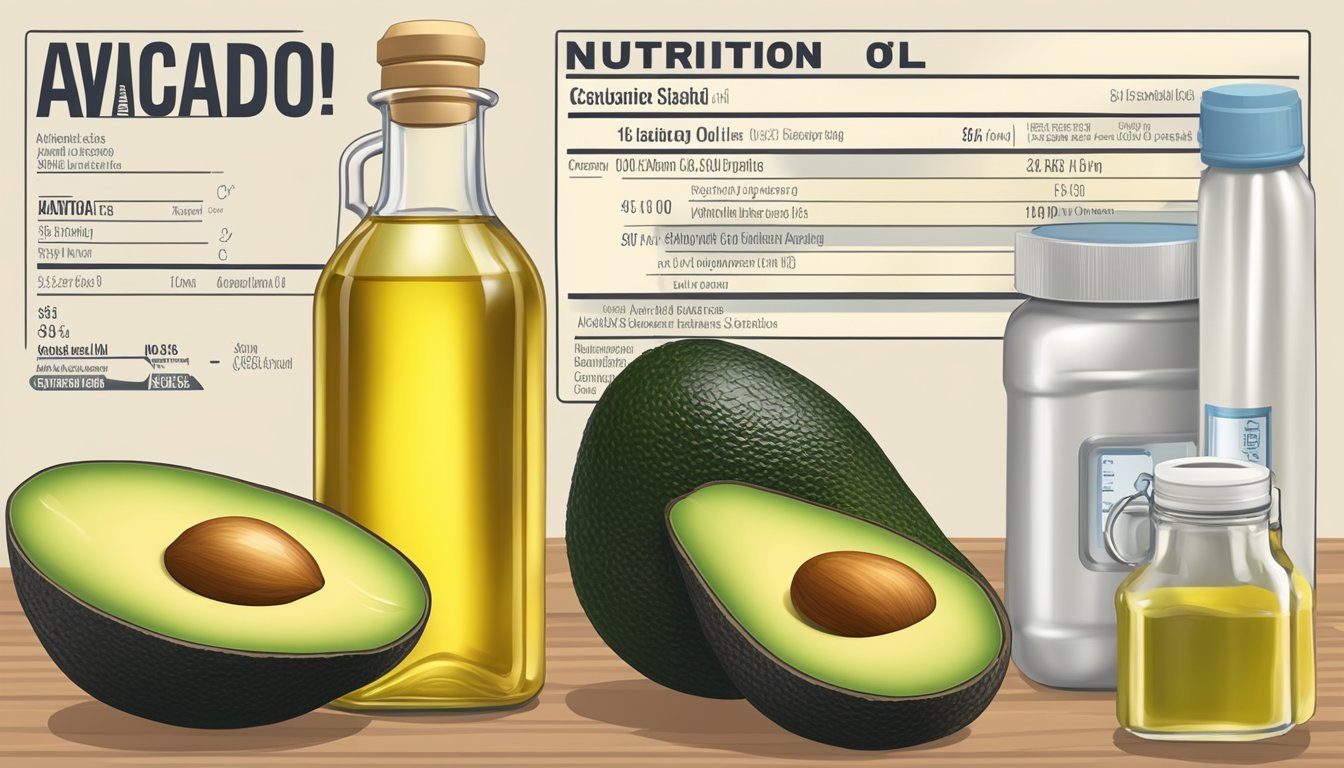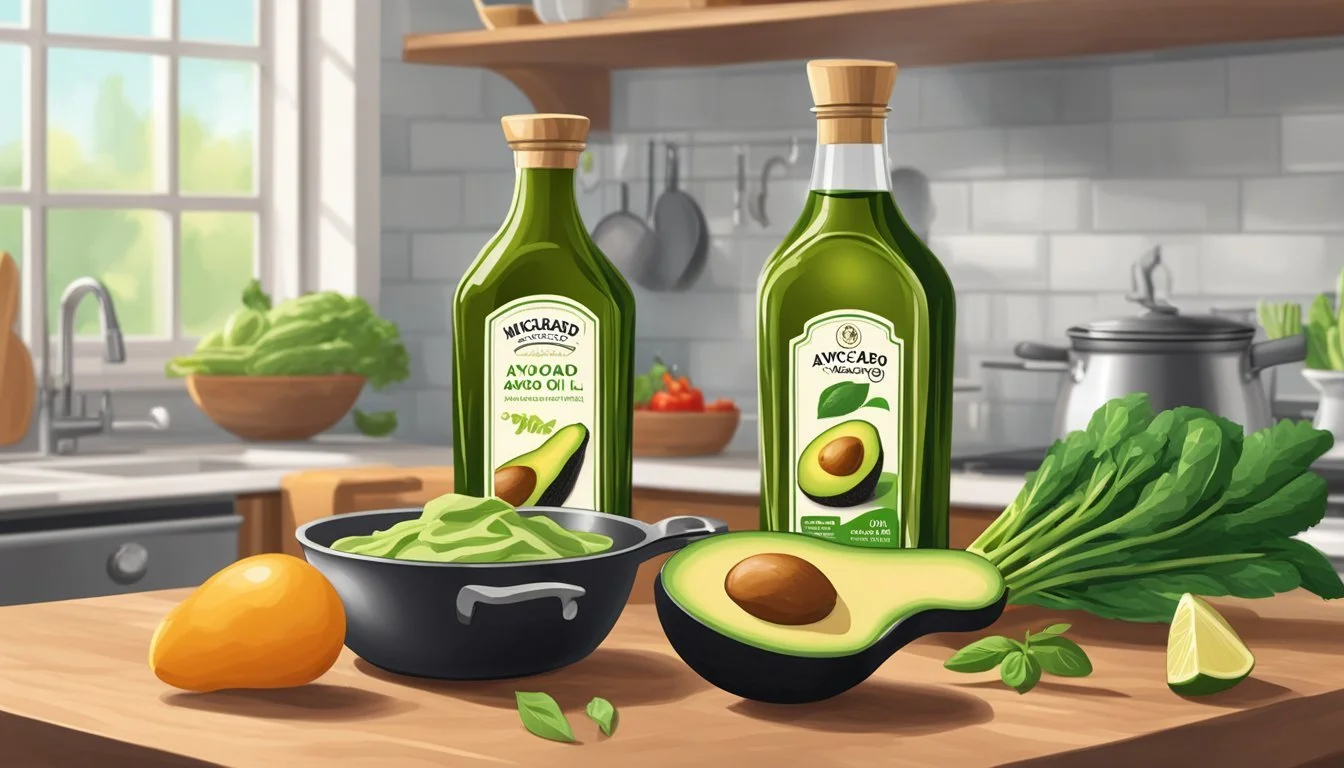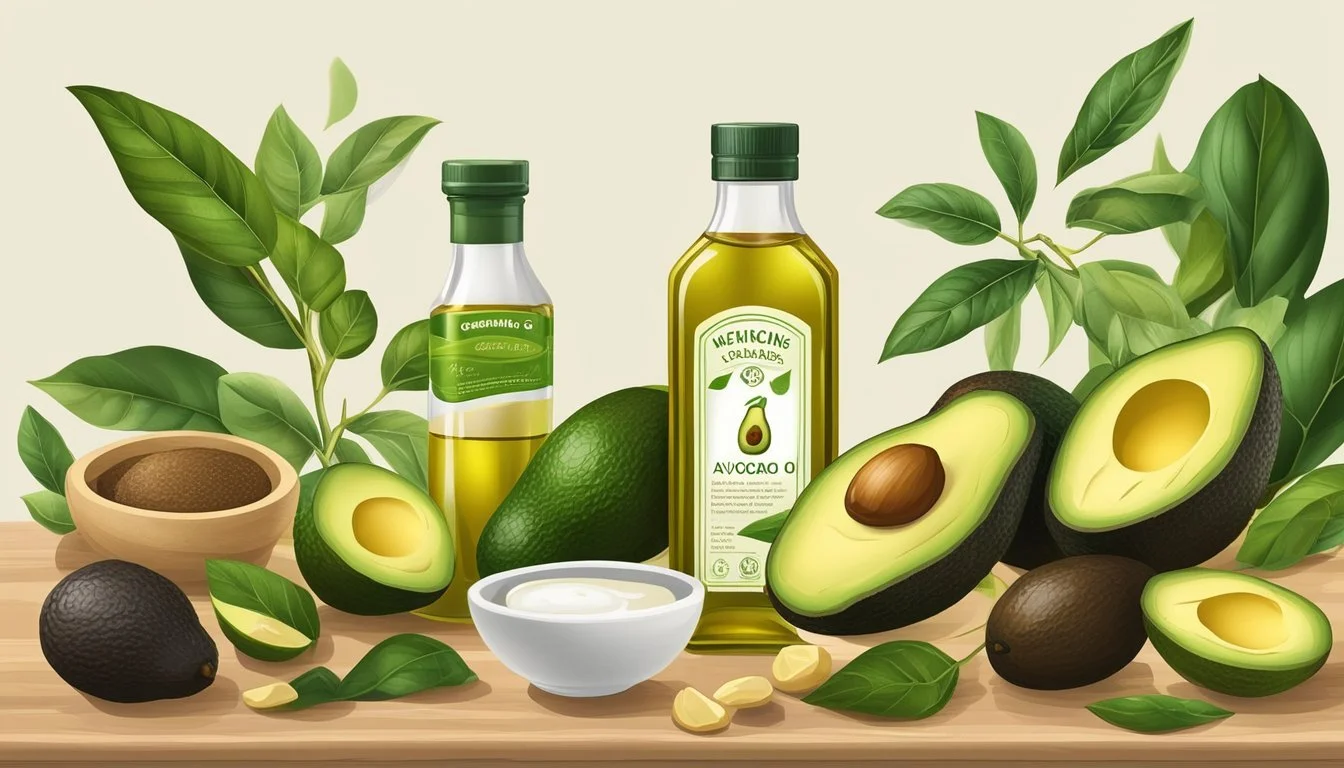Is Avocado Oil a Healthy Cooking Oil?
Unveiling the Facts
Avocado oil is emerging as a popular choice in the realm of healthy cooking oils, prized for its nutritional profile and versatility in the kitchen. Extracted from the flesh of avocados, this oil is unique in that it is one of the few oils not derived from seeds. Rich in monounsaturated fats, which are considered heart-healthy, avocado oil has gained attention for its potential health benefits, including improving lipid profiles and enhancing the absorption of important nutrients like carotenoids, a type of antioxidant found in colorful vegetables.
When it comes to cooking, the properties of avocado oil are equally impressive. Its high smoke point allows for a variety of cooking methods, including grilling, baking, and sautéing without degrading the oil or releasing harmful compounds, a concern with oils that have lower smoke points. The mostly neutral flavor profile of avocado oil makes it an easy fit for a wide array of recipes, enhancing dishes without overwhelming them.
Choosing a cooking oil is an important decision that can affect both the taste and healthfulness of meals. Avocado oil offers a compelling option for those seeking a healthy cooking oil. It gracefully balances the need for a subtle flavor with the demand for high-temperature cooking stability, making it an alluring choice for food enthusiasts and health-conscious cooks alike.
Avocado Oil Overview
Avocado oil has emerged as a popular cooking oil due to its nutritional benefits and versatility in the kitchen. It comes in different types and boasts a composition rich in healthy fats and nutrients that contribute to its associated health benefits.
Types of Avocado Oil
Avocado oil is categorized based on the extraction process and degree of processing:
Refined Avocado Oil: This oil undergoes refining to remove impurities, resulting in a neutral flavor and higher smoke point. It is suitable for high-heat cooking.
Unrefined Avocado Oil: Also known as extra-virgin or virgin avocado oil, this variant is less processed and retains more of the natural flavor and color. Cold-pressed avocado oil falls under this category, retaining most of the natural nutrients.
Nutritional Composition
The nutritional profile of avocado oil is notable for its rich content of healthy fats and vitamins:
Monounsaturated Fats: Avocado oil is high in monounsaturated fats, particularly oleic acid, beneficial for heart health.
Polyunsaturated Fat: It also contains some polyunsaturated fats, which are essential fatty acids.
Saturated Fats: The oil has a lower amount of saturated fats compared to other cooking oils.
Vitamin E: An antioxidant that helps protect the body from free radical damage.
The balance of these fats contributes to the oil's overall health profile.
Health Benefits
The consumption of avocado oil has been associated with several health benefits:
Heart Health: The high content of monounsaturated fats and oleic acid supports cardiovascular health.
Antioxidants: The presence of antioxidants such as Vitamin E contributes to reducing oxidative stress in the body.
Nutrient Absorption: Avocado oil can enhance the absorption of fat-soluble vitamins and antioxidants in other foods.
Avocado Oil in Cooking
Avocado oil, with its high smoke point and neutral taste, has gained popularity as a versatile cooking oil. It is particularly well-suited for high-heat cooking methods, and its refined state further enhances its stability and usability across various culinary applications.
Cooking Applications
Avocado oil is a robust choice for an array of cooking techniques. Its uses include:
Sautéing: It provides a stable base for sautéing vegetables and meats.
Baking: Avocado oil's subtle flavor makes it suitable for baked goods.
Grilling and Searing: The oil's resilience at high temperatures is ideal for grilling and searing meats.
Taste Profile
Avocado oil is known for its:
Neutral flavor: This makes it an adaptable oil that does not overpower the taste of other ingredients.
Smoke Point and Heat Stability
The heat properties of avocado oil are significant:
Refined avocado oil: Typically has a smoke point around 500 degrees Fahrenheit, making it one of the highest among cooking oils.
High smoke point: It is conducive to high-heat cooking methods without releasing harmful free radicals or breaking down and losing its nutritional benefits.
Health Implications
Avocado oil is recognized for its potential health benefits, particularly related to cardiovascular health, anti-inflammatory properties, and more. This section looks into scientific findings regarding its implications for health.
Cardiovascular Effects
Avocado oil is high in oleic acid, a monounsaturated fat known to have positive effects on cholesterol levels. Regular consumption can lead to a reduction in low-density lipoprotein (LDL) cholesterol and an increase in high-density lipoprotein (HDL) cholesterol, improving overall heart health and potentially reducing the risk of heart disease.
Inflammation and Antioxidant Properties
This oil exhibits anti-inflammatory properties due to its composition of antioxidants such as vitamin E. This helps in reducing oxidative stress in the body, which is associated with the development of chronic diseases. The high levels of antioxidants may also be beneficial in mitigating age-related oxidative damage.
Weight Management and Diabetes
Inclusion of avocado oil in a balanced diet could aid in weight management, as it is a source of healthy fats that can promote satiety. Furthermore, its effects on blood sugar regulation can be beneficial for individuals with diabetes, assisting in maintaining more stable blood sugar levels.
Eye Health and Other Benefits
Avocado oil contains lutein, an antioxidant that is beneficial for eye health. Regular intake of lutein may reduce the risk of cataracts and macular degeneration. Other potential benefits of avocado oil include improvements in skin health and enhanced nutrient absorption from other foods when used in cooking.
Comparative Analysis
This section provides a detailed comparison of avocado oil to other popular cooking oils and discusses optimal usage based on these properties.
Avocado Oil vs. Other Cooking Oils
Avocado oil is distinguished by its high content of monounsaturated fats, making it comparable to olive oil in terms of its health benefits. Both oils consist mostly of oleic acid, a heart-healthy fat that can contribute positively to maintaining good cholesterol levels.
Here's a quick comparison of common cooking oils:
Oil Type Monounsaturated Fats Saturated Fats Smoke Point Avocado Oil High Low High (520°F) Olive Oil High Medium Medium (350-410°F) Canola Oil Moderate Low Medium (400°F) Coconut Oil Low High Medium (350°F) Sunflower Oil Moderate Low High (440°F) Peanut Oil Moderate Medium High (450°F)
Avocado oil's smoke point is significantly higher than that of olive oil, making it suitable for high-heat cooking methods without compromising the oil's nutritional integrity. In contrast, olive oil is best suited for lower-heat preparations or as a finishing oil.
Other oils, such as coconut oil, contain higher amounts of saturated fats, which should be considered when evaluating healthfulness. Canola, sunflower, and peanut oils generally offer a balance of fats, but their processing methods and potential for trans fats can vary.
Choosing the Right Oil for Specific Uses
When selecting an oil for cooking, two critical aspects to consider are the smoke point and the type of fat it contains. Avocado oil, with its high smoke point, is ideal for frying, sautéing, and grilling. In contrast, olive oil with its slightly lower smoke point and robust flavor is more appropriate for dressings, marinades, and light sautéing.
Considerations for oil selection based on use:
Dressings/Sauces: Olive oil's flavor and nutritional profile are preferred.
High-Heat Cooking: Avocado oil is superior due to its high smoke point.
Baking: Canola or sunflower oil can provide a neutral taste.
Frying: Peanut oil's high smoke point and flavor make it suitable for deep frying.
Health-Conscious Cooking: Oils high in monounsaturated and unsaturated fats like avocado or olive oil are recommended.
It's important to match the oil's characteristics with the intended cooking method to maximize both health benefits and culinary outcomes.
Culinary Uses and Recommendations
Avocado oil is esteemed for its versatility in food preparation, offering both exceptional quality and a high smoke point. Its neutral flavor profile also makes it a preferred finishing oil for enhancing dishes without overpowering other tastes.
Food Preparation and Recipes
Avocado oil's high smoke point, approximately 520°F (271°C), makes it suitable for various cooking techniques including grilling, baking, sautéing, and searing. It serves well as a base for salad dressings and marinades, pairing seamlessly with a multitude of flavors.
Grilling: Use avocado oil to brush over vegetables, meat, or seafood before grilling.
Baking: Substitute avocado oil in recipes that call for butter or other oils for a healthier option.
Sautéing: A small amount of avocado oil is ideal for cooking at medium to high heat.
Dressings: Whisk avocado oil with vinegar, herbs, and seasonings for a light, flavorful salad dressing.
Tips for Storing and Preserving Quality
To maintain avocado oil's freshness and quality, proper storage is crucial. Keep avocado oil in a cool, dark place to extend its shelf-life and preserve its nutritional properties. Ideal storage will prevent oxidation and rancidity.
Storage: Keep the bottle tightly sealed when not in use.
Shelf Life: High-quality avocado oil can last up to six months when stored correctly.
Usage: Use as a finishing oil to drizzle over dishes right before serving, which will bring out the delicate flavors without subjecting it to heat.
Consumer Considerations
When selecting avocado oil, consumers should carefully consider labeling practices and the oil's types, as well as reflect on cost implications and accessibility within their regions.
Labeling and Types
Avocado oil is available in various types, such as refined, unrefined, cold-pressed, and extra virgin. Each type denotes a different quality and method of production. Cold-pressed avocado oil is produced through a mechanical process that maintains lower temperatures, preserving the nutritional value without the use of chemical solvents. In contrast, refined avocado oil has gone through processes that remove impurities but also strip away some nutrients. Labels such as extra virgin indicate that the oil is made from pure, high-quality avocados and has preserved the best flavor and nutrient profile.
Chosen Foods and La Tourangelle are reputable brands that often produce cold-pressed and extra virgin options. Consumers should look for terms like "unrefined" and "cold-pressed" to determine the processing method used in the product. It is crucial to scrutinize labels for authenticity, as some oils on the market can be adulterated or stale, highlighting the importance of purchasing from trustworthy sources.
Cost and Accessibility
The price of avocado oil can vary significantly based on the type and brand. Cold-pressed and extra virgin varieties tend to be more expensive due to their higher quality and nutrient content. For example, one may find that the cost per ounce of walnut oil is comparable to or lower than many avocado oils, indicating that while avocado oil is praised for its health benefits, budget considerations could influence buying choices.
Type Average Cost Accessibility Refined Lower cost Widely available Unrefined Moderate cost Less available Cold-pressed Higher cost Specialty stores/Online Extra Virgin Highest cost Specialty stores/Online
While refined avocado oil is more accessible and often found in general supermarkets, cold-pressed and extra virgin oils are less common and primarily stocked by specialty health food stores or online retailers. Balancing between cost and accessibility can help guide consumers towards an appropriate choice tailored to their needs and resources.
Scientific Research and Perspectives
Recent scientific research has delved into the health implications of using avocado oil in cooking, focusing on its nutritional composition and potential benefits for cardiovascular health. Studies highlight the rich content of monounsaturated fats and bioactive substances such as omega-3 and omega-6 fatty acids, polyphenols, and carotenoids.
Clinical Trials and Studies
Clinical evidence suggests that the high concentration of oleic acid, a monounsaturated fat, in avocado oil, can be beneficial for cardiovascular health. A number of studies have examined how these fats can lower LDL cholesterol while maintaining levels of HDL cholesterol, contributing to a reduced risk of heart disease. Furthermore, the presence of carotenoids in avocado oil enhances nutrient absorption, which is critical for maintaining eye health among other benefits.
Key findings from clinical trials include:
Reduction in blood pressure: Studies have noted a decrease in hypertension markers among participants using avocado oil.
Improved lipid profiles: Research demonstrates that avocado oil can positively influence cholesterol levels, specifically increasing HDL (good cholesterol) and decreasing LDL (bad cholesterol).
Nutritional Experts' Opinions
Nutritional experts recognize avocado oil as a healthy fat that supports diverse body functions. It is a source of essential fatty acids like omega-3 and omega-6, which play a vital role in brain function and normal growth and development. Moreover, experts agree on the antioxidant properties of polyphenols and phenols found in avocado oil, which contribute to its protective effects against oxidative stress.
Opinions from nutritional experts highlight that:
Health benefits: Avocado oil is nutritious and can support the prevention of chronic diseases when included as part of a balanced diet.
Versatile use: Nutritional professionals often recommend avocado oil for both cold dishes and high-heat cooking due to its stability at high temperatures.
Risks and Considerations
While avocado oil is considered a healthy cooking oil, it is important for consumers to be aware that, like all foods, it could have potential adverse effects and may interact with certain medications, necessitating caution in its use.
Potential Adverse Effects
Avocado oil is high in monounsaturated fats and generally has health benefits associated with its consumption. However, high temperatures and prolonged storage can lead to the oil becoming rancid, potentially resulting in the production of harmful free radicals. Rancidity not only compromises the flavor but also the nutritional value of the oil, and the free radicals produced can contribute to inflammation and various chronic diseases.
Interactions with Medications
Concerning medication interactions, individuals taking blood thinners such as warfarin should exercise caution. Avocado oil contains vitamin K, which is known to affect blood clotting. Inconsistent intake of vitamin K can alter the effects of warfarin, therefore, it is important for individuals on such medications to maintain a consistent level of vitamin K consumption and consult their healthcare provider before making changes to their diet. Additionally, for the general population, moderation is key, as overconsumption can lead to an excess intake of calories and potentially weight gain.
Sustainable and Ethical Sourcing
When considering avocado oil as a cooking oil, it is essential to address both its sustainability and the ethics involved in its sourcing. These factors hinge on the environmental impact of avocado cultivation and the production practices employed.
Environmental Impact
Water Usage: A significant environmental concern with avocado oil is water consumption. It takes over 60 gallons of water to grow a single avocado, which can strain local water supplies.
Deforestation: Intensive farming, especially in avocado-rich regions like Mexico, has led to deforestation and loss of biodiversity.
Erosion: The replacement of forest with avocado orchards on hillsides has contributed to soil erosion problems.
Production Practices
Sustainable Sourcing: Sustainable sourcing is critical, with farmers and producers increasingly seeking ways to minimize environmental harm. The emphasis is on reducing water usage and preventing habitat destruction.
Ethical Considerations: It is imperative to consider the welfare of farming communities and labor conditions. Ethical sourcing involves fair wages and safe working conditions for all laborers involved in the avocado oil production chain.








